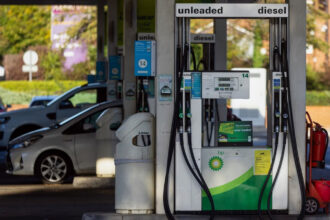Saudi Aramco, the world’s largest energy company, is exploring a new business opportunity that could expand its presence in key global markets. The company is considering making an offer to buy lubricant assets currently being sold by BP Plc, a major oil and gas company. These assets operate under the well-known brand name Castrol, which produces automotive and industrial lubricants. If Aramco proceeds with the deal, it could strengthen its position in the lubricants market, particularly in fast-growing economies like India.
BP is in the process of reviewing its Castrol lubricants business, which industry experts estimate to be worth around $10 billion. Aramco is evaluating whether to bid for a part of this business or acquire all of it. A successful acquisition would allow Aramco to combine Castrol’s operations with its existing lubricant business, Valvoline, which it purchased for $2.65 billion in 2023. This would create a more extensive network of lubricant production and distribution, giving Aramco greater control over this segment of the oil industry.
India is one of the most attractive markets for Aramco in this deal. Castrol India, a publicly listed company on the BSE, has a market value of about $2.5 billion. The Indian market is growing rapidly due to increasing vehicle ownership and industrial activity, making it a lucrative opportunity for companies in the lubricants business. By acquiring Castrol’s operations in India, Aramco would strengthen its foothold in a country with a high demand for automotive and industrial lubricants.
While Aramco is seriously considering this acquisition, discussions are still in the early stages. The company has not yet decided whether it will move forward with a bid or what the structure of such a deal would look like. Moreover, Castrol’s lubricant assets are attracting interest from other potential buyers, meaning Aramco could face competition in securing the deal. Representatives from both Aramco and BP have declined to comment on the matter, keeping the details of the negotiations private.
This potential acquisition aligns with Aramco’s broader strategy of expanding its refining and chemical business in Asia. The company has previously stated that it sees China, India, and Southeast Asia as major growth markets. By owning businesses like fuel stations and lubricant manufacturing units, Aramco gains more control over the entire oil supply chain – from crude oil production to refining and retail sales.
Over the past few years, Aramco has been actively acquiring refining and chemical assets in various Asian markets. Just last month, it purchased a stake in a company in the Philippines, giving it access to the local retail fuel market. Additionally, the company is also reportedly among the bidders for Shell Plc’s network of service stations in South Africa. These moves show Aramco’s commitment to expanding its presence in key consumer markets and strengthening its position in the global energy industry.

